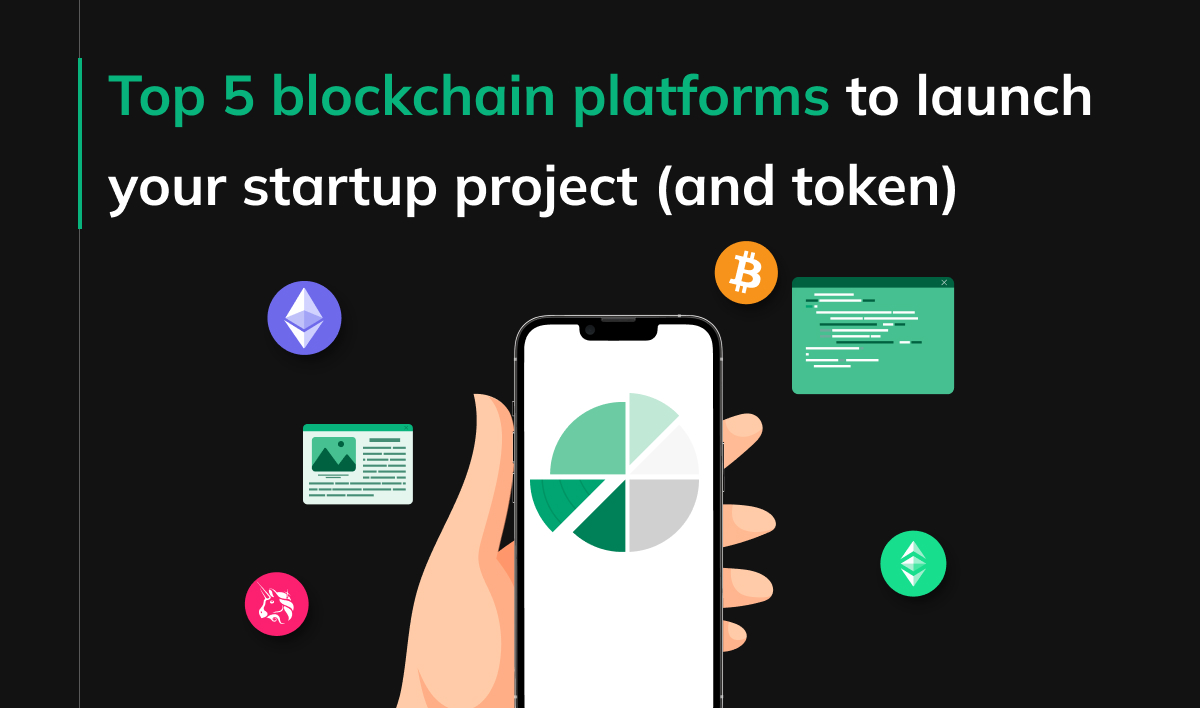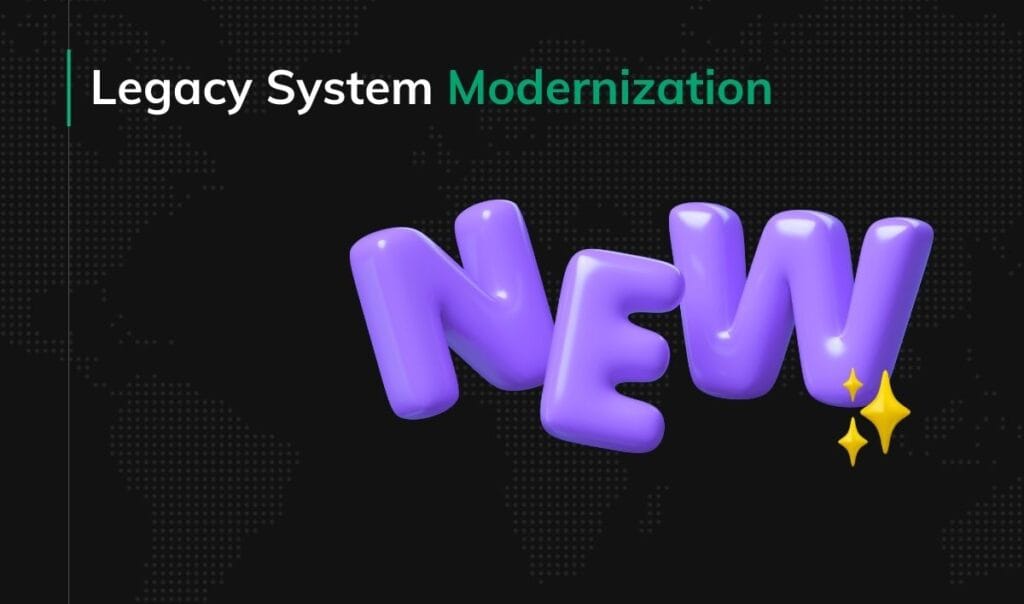Top 5 blockchain platforms to launch your startup project (and token)

Interest in blockchain technology and blockchain projects has been growing rapidly, portrayed as the next revolutionary solution to streamline supply chains, improve product traceability, simplify trade operations and improve the efficiency of financial transactions. A lot of this interest has found its origin in investment trends surrounding Bitcoin and other cryptocurrencies.
Although Bitcoin is an older blockchain platform that faces many challenges eg. including energy consumption transaction speed, the younger platforms like Ethereum, Cardano, XRP have been developed to help overcome these limitations and provide practical value for other business uses and applications. In recent years we have seen the deployment of many interesting layer-1 solutions like Ethereum, Binance Smart Chain, Cardano, Solana, Polkadot, EOS, and some layer-2 (a blockchain that confirms transactions faster and cheaper than a layer-1 blockchain network) solutions like Polygon (Matic), Elrond, Lightning. Startup founders now have plenty of options to choose from before they start to develop their software project with a chosen blockchain development partner.
Each of the blockchains, however offers specific features and potential. Let’s then analyze them further to better understand some of their technical and business aspects.
Ethereum
Ethereum was introduced in 2013 and is one of the oldest and most established blockchain platforms. It also has an active developer community orchestrated by the Enterprise Ethereum Alliance, which has more than 250 members, including Intel, JPMorgan, and Microsoft.
Ethereum is the first, fully decentralized platform that establishes a peer-to-peer network that securely executes and verifies application code, called smart contracts. Smart contracts allow participants to transact with each other without a trusted central authority. Transaction records are immutable, verifiable, and securely distributed across the network, giving participants full ownership and visibility into transaction data. Transactions are sent from and received by user-created Ethereum accounts. A sender must sign transactions and spend Ether, Ethereum’s native cryptocurrency, as a cost of processing transactions on the network.
However, Ethereum’s key strength is that it enables true decentralization with support for smart contracts, its key weaknesses include slow processing times and higher transaction processing costs compared to other platforms. Besides its role as a blockchain platform that underpins enterprise applications, it has its own cryptocurrency called ether.
However, alternative blockchain networks can process transactions much faster at a potentially lower cost than Ethereum, though many observers expect this to change after Ethereum adopts a more efficient security mechanism in early 2022 (Proof of Stake).
The Ethereum platform is seeing widespread adoption by technologists who build decentralized applications, or dApps, on the Ethereum network. For example, there are numerous platforms and exchanges for nonfungible tokens (NFTs) — a type of digital asset that can be exchanged on a blockchain. It has a mature ecosystem of tools for writing smart contracts using the Solidity programming environment, which runs on the Ethereum Virtual Machine.
Interest in the Ethereum blockchain created an enormous wave of decentralized finance projects, known as DeFi, and unique digital tokens called NFTs. These applications are being used by millions of people around the world. The network effect could make it the platform of choice for what has become known as Web 3.0, where a series of decentralized apps could one day challenge Big Tech’s offerings.

Binance Smart Chain
Binance Smart Chain (BSC), launched by crypto exchange Binance, is an Ethereum Virtual Machine (EVM)‐compatible blockchain built to support smart contracts and staking in parallel to the previously launched main chain, Binance Chain.
Binance Smart Chain is focused on making DeFi affordable by offering a higher gas block limit and faster block times than Ethereum. Its design is based on the Ethereum Geth client and a copy of the EVM, allowing projects from the Ethereum ecosystem to function natively within BSC.
BSC allows users to build decentralized applications (DApps) and stake on Binance Smart Chain while still making fast asset trades on Binance Chain; Binance Chain remains fast because it does not need its own smart contract functionality. Binance Chain is a Tendermint‐based protocol built using portions of the Cosmos SDK.
Binance Smart Chain is connected to Binance Chain by two relayers. The BSC Relayer passes communications from Binance Chain to Binance Smart Chain (such as token transfers, refunds, or staking transactions). The Oracle Relayer monitors events on Binance Smart Chain and broadcasts the transactions to Binance Chain. This two‐way connection enables cross‐chain transfers and connects the two networks’ ledgers into one interoperable system.
The Binance Smart Chain main net launched in September of 2020. As of July 2021, Binance Smart Chain processes as many as 9 million transactions daily, with a current all-time daily high of 11.83M transactions in May 2021. The developer community on Binance Smart Chain is growing, in part backed by BSC’s $100M Accelerator Fund launched with the goal of accelerating the development of blockchain technology and DeFi within the BSC ecosystem.
Binance Smart Chain is becoming an important hub for developers looking to build applications, as demonstrated by the number of DeFi and NFT projects launched on the platform,” said Aaron Henshaw, who leads engineering at Coinbase Cloud. “We’re proud to offer secure read/write infrastructure to support this flourishing developer community and help drive innovation in the broader crypto ecosystem.
Cardano
Cardano is a public blockchain platform. It is open-source and decentralized, with consensus achieved using proof of stake. It can facilitate peer-to-peer transactions with its internal cryptocurrency, Ada.
Cardano was founded in 2015 by Ethereum co-founder Charles Hoskinson. The development of the project is overseen and supervised by the Cardano Foundation based in Zug, Switzerland.. It is also the largest cryptocurrency to use a proof-of-stake blockchain, which is seen as a greener alternative to proof-of-work protocols.
Cardano is a proof-of-stake blockchain platform: the first to be founded on peer-reviewed research and developed through evidence-based methods. It combines pioneering technologies to provide unparalleled security and sustainability to decentralized applications, systems, and societies.
Cardano is designed to allow users to do cross-network transactions through sidechains. A sidechain is basically a different Blockchain being connected to the main blockchain. The connection creates an extended link between blockchain networks allowing for a transfer of digital tokens between them.
According to the Cardano leader (Charles Huskinson), after the official launch of Smart Contracts (09.2021) Cardano network started processing the deployment of over 200 DeFi projects, which he believes will create a totally new ecosystem in the space.
Polkadot
Polkadot is an interoperable blockchain that enables multiple blockchain ecosystems or networks to communicate with each other. In a way, it bridges them.
There is a Swiss Foundation named Web3 Foundation (founders: Robert Habermeier, Dr. Gavin Wood, Peter Czaban).
The Foundation’s goal is to facilitate a fully functional decentralized web that will be completely under the control of users so that users’ data can be kept secure from any central authority. Web3 Foundation is funding the development of the Polkadot ecosystem. Polkadot is its flagship project, a next-generation blockchain protocol. It intends to bring true interoperability to the entire network of purpose-built blockchains by enabling them to operate seamlessly with each other. With that, Polkadot aims to enable a truly decentralized web by facilitating the transfer of any type of data between any type of blockchain. And in the process, it promises to deliver the most robust security, scalability, and innovation.
Why is the Polkadot network so highly anticipated? The web, in its current form, is centralized. Blockchain technology can make it decentralized, but blockchain legacy networks lack interoperability. Polkadot is the next-generation Blockchain that strives to build a complete decentralized web.
Like any other Blockchain ecosystem, even Polkadot stands for the idea of a decentralized web, where a handful of large companies won’t control how users interact with technologies or won’t have the power to exploit users’ data security and privacy for personal interests and incentives.
The web we have today forces us to agree to certain terms and conditions whenever we want to use any software or app. Most of the time, we don’t even read these terms because we don’t have the free will to accept or reject them. If we want to use an app or web tool, we have to accept the terms levied upon us, and as we go on using these apps, we generate piles of valuable data that gives a detailed insight into our personal lives. It means we are simply giving out the details of our personal lives for free, holding on to a thin line of trust that the companies controlling our data are not evil.
However, development in decentralized technologies like Blockchain and progress in open source has brought in the possibilities of decentralized web systems. A decentralized web can break corporate stranglehold on the web and prioritize individual sovereignty. But despite being one of the biggest technology disruptions, real-world deployment of blockchain technology is still subjected to certain limitations. Most of these limitations exist because blockchain ecosystems function in silos.
Multiple specialized blockchains have demonstrated great promise in fields like the Internet of Things (IoT), governance, finance, identity management, asset tracking, and web decentralization. But the best features of these multiple specialized networks can’t be put together because these networks can’t communicate with each other to exchange data. This design limitation severely hinders the large-scale adoption of Blockchain. Polkadot protocol is a cross-chain solution designed to facilitate blockchain interoperability so that any type of data can be sent between any type of blockchain to unlock a wide range of real-world use cases.
Solana
Solana is a blockchain platform specifically designed to host decentralized applications. It is similar to other leading dApp blockchains like Ethereum and Cardano.
However, Solana is an open-source project currently run by the Geneva-based Solana Foundation. The blockchain was built by developers at San Francisco-based Solana Labs. Solana has gained traction by offering something that the Ethereum blockchain has so far been unable to deliver; faster operation and lower transaction fees.
Unlike Ethereum, Solana is a PoS (proof of stake) blockchain, making it more environmentally friendly than the popular PoW (proof of work) blockchains like Ethereum and Bitcoin. It has a naïve coin called Solana and has the ticker SOL.
The Solana project is also backed by some of the biggest investors in the cryptocurrency space, including Alameda Research, Andreessen Horowitz, and Polychain. Solana also has lower transaction fees than most of its competitors.
Some market experts believe that Solana is at the beginning of its growth cycle and has the potential to match Ethereum in terms of price and market value over the next few years.

Summary
The blockchain world moves at a frenetic pace of innovation with emerging new platforms, additional new features, and new releases, while ambitious enterprises are eager to get ahead of the curve with its disruptive potential. So don’t miss the opportunity – If you have a software product idea – the time to act might be right now. Check our blockchain development services and contact us if you need support in launching your startup on the blockchain.
If you consider building your own cryptocurrency exchange – read this article: Cryptocurrency exchange development – building from scratch or using white label solutions?







